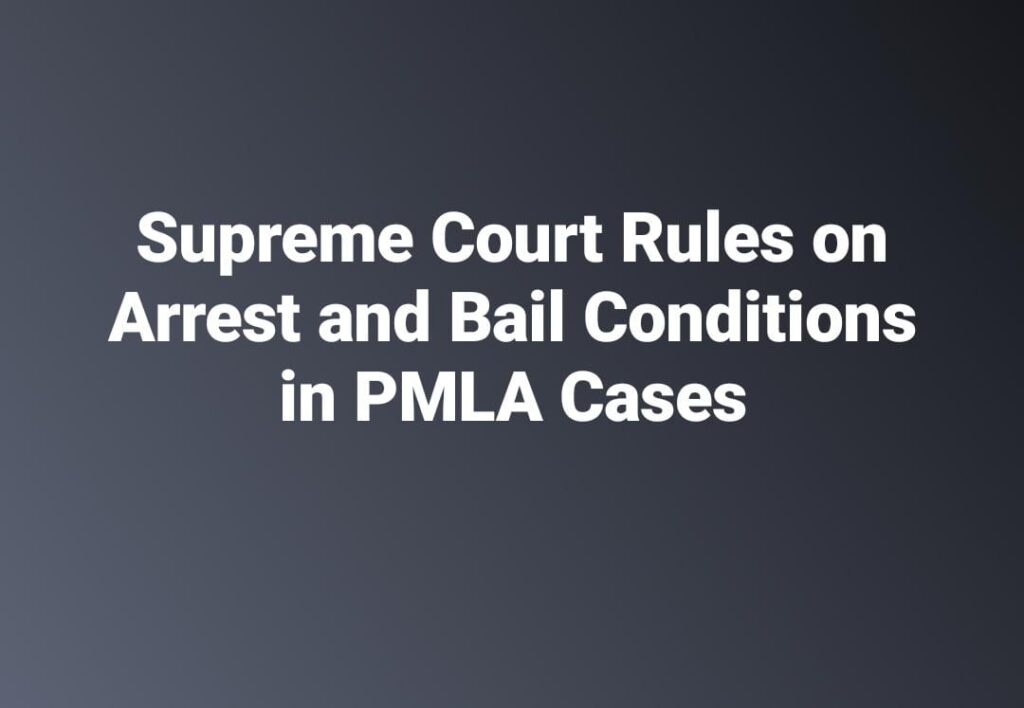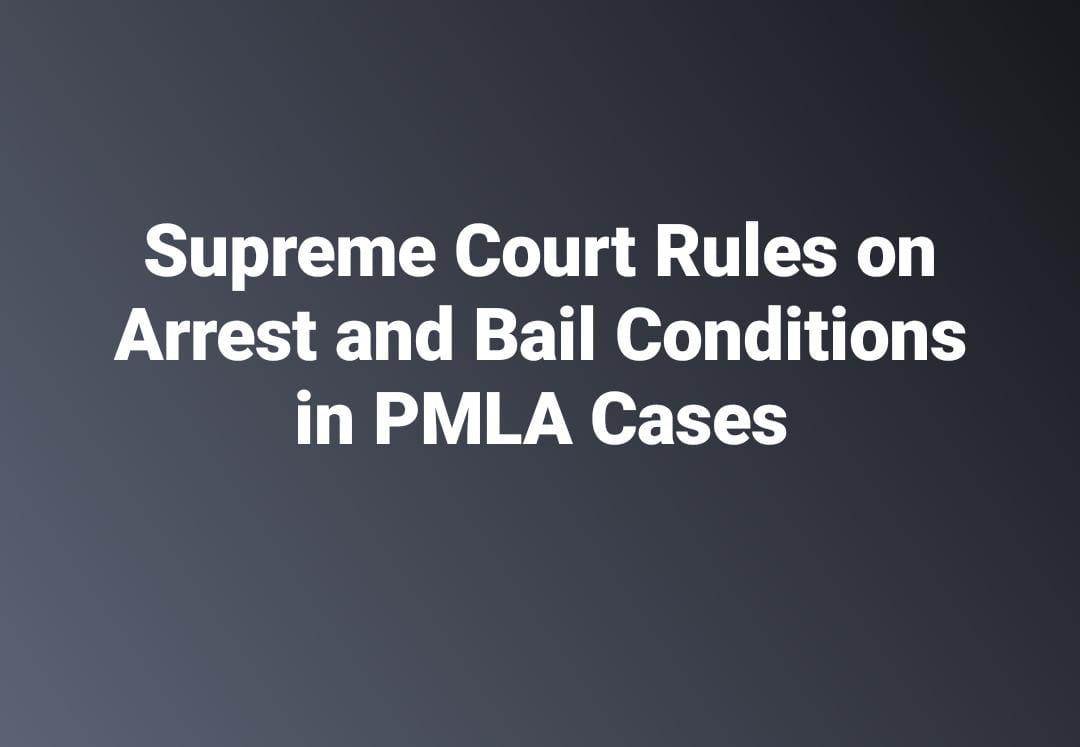National Desk
16 May
Sandeep Dhand Ludhiana
In a significant judgment, the Supreme Court has ruled that an accused in a money-laundering case who has not been arrested by the Enforcement Directorate (ED) during the investigation cannot be arrested after the special court takes cognisance of the agency’s charge sheet and issues summons under the Prevention of Money Laundering Act (PMLA), 2002.
The Bench, led by Justice AS Oka and including Justice Ujjal Bhuyan, stated that if the ED seeks the custody of such an accused, it must formally apply and obtain permission from the special court. The court must then hear the accused and provide reasons if it determines that custodial interrogation is necessary, even if the accused was not arrested under Section 19 of the PMLA during the investigation.

The ruling came in response to a petition filed by Tarsem Lal, who challenged a Punjab and Haryana High Court order that denied his anticipatory bail plea. The High Court had dismissed Lal’s plea, citing failure to meet conditions under Section 45 of the PMLA, which necessitates the prosecutor’s opportunity to oppose the bail and requires the court to believe the accused is not guilty and unlikely to reoffend while on bail.
The Supreme Court examined whether the stringent twin-test for bail under Section 45 applied when a special court considers bail after taking cognisance of a money-laundering offence. The Bench clarified that an accused responding to a court summons and executing a bond under Section 88 of the CrPC does not equate to applying for bail, thus exempting them from the stringent conditions of Section 45.
The court emphasized that an appearance by summons does not constitute custody, and therefore, the accused is not required to meet the twin-test for bail. “If the accused appears before the special court by summons, it can’t be treated that he is in custody… He is not required to apply for bail, and thus twin conditions of Section 45 of the PMLA are not applicable,” the judgment stated.
This ruling provides clarity on the procedural aspects of arrest and bail for individuals accused under the PMLA, particularly in ensuring fair application of the law.

